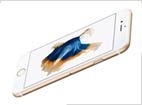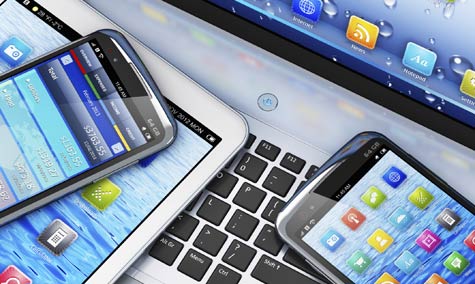In a way, the debate over data plans was never about what it should have been about, which is whether some people are using more than their share of a constrained resource.
The problem is that the cellular industry made the mistake of calling some plans “unlimited” when they never really were. As plans changed and some people were accused of abusing them, the public was left with a simple thought: “What do the cellular companies not understand about the phrase ‘unlimited data plan.’ ”
With that framing as context, it is interesting to see how cellular plans are changing. It is particularly important for corporate folks to watch as they deal with Bring Your Own Device (BYOD) and the way in which employees are reimbursed for use of their devices.
AT&T said this week that subscribers will now be able to use 22GB of data before being throttled. That’s four times the previous limit, which was 5GB, according to eWeek. The company’s explanation for the change was that its network has been upgraded over time. However, more than network improvements may have been at play:
The spokesman did not comment when asked if AT&T’s throttling threshold changes are related to a proposed $100 million fine against the company from the Federal Communications Commission and Federal Trade Commission in connection with its throttling practices against users of unlimited data accounts.
The advent of Wi-Fi and savvy consumers has led to a bit of a cat and mouse game with such plans. Jess Bolluyt at The Cheat Sheet offers an explanation of the unlimited data plan situation and points out that the Federal Trade Commission agrees with those who think that “unlimited” isn’t synonymous with “unlimited until we decide otherwise.”
Fortune reports that T-Mobile CEO John Legere accused subscribers of “stealing data” and trying to evade data limits by using a smartphone’s Wi-Fi features to tether other devices. The issue is that many of these devices use more data than the phones that provide entry to the carriers’ networks:
This is such a problem for carriers because with larger screens and faster processors a laptop can consume three times more bandwidth as a smartphone (or more). If someone on T-Mobile’s network tethers he will gobble far more data than even a heavy smartphone user. That’s why carriers have those limits in place, and why carriers like Verizon didn’t even allow tethering early in the flush of unlimited data plans.
In any case, unlimited plans seem to be on the way out. Jim Patterson, the CEO of the Patterson Advisory Group, posted a long analysis at RCR Wireless of what these unlimited plans cost carriers and he came to a pretty simple conclusion:
Bottom line: Metered usage is the hallmark of any utility and high-speed Internet is quickly moving to utility status. Whether wireless or wireline, truly unlimited plans will soon be museum artifacts.
The dynamics of the debate are askew, though. Few people would argue that it is unfair for one party to dominate a fixed commodity, such as bandwidth, that is being shared among a large group of people. However, no matter how sensible their position is, carriers will be seen as taking something away from subscribers simply because of the “U-word” that the marketing department of yesterday dreamed up.
Carl Weinschenk covers telecom for IT Business Edge. He writes about wireless technology, disaster recovery/business continuity, cellular services, the Internet of Things, machine-to-machine communications and other emerging technologies and platforms. He also covers net neutrality and related regulatory issues. Weinschenk has written about the phone companies, cable operators and related companies for decades and is senior editor of Broadband Technology Report. He can be reached at [email protected] and via twitter at @DailyMusicBrk.




